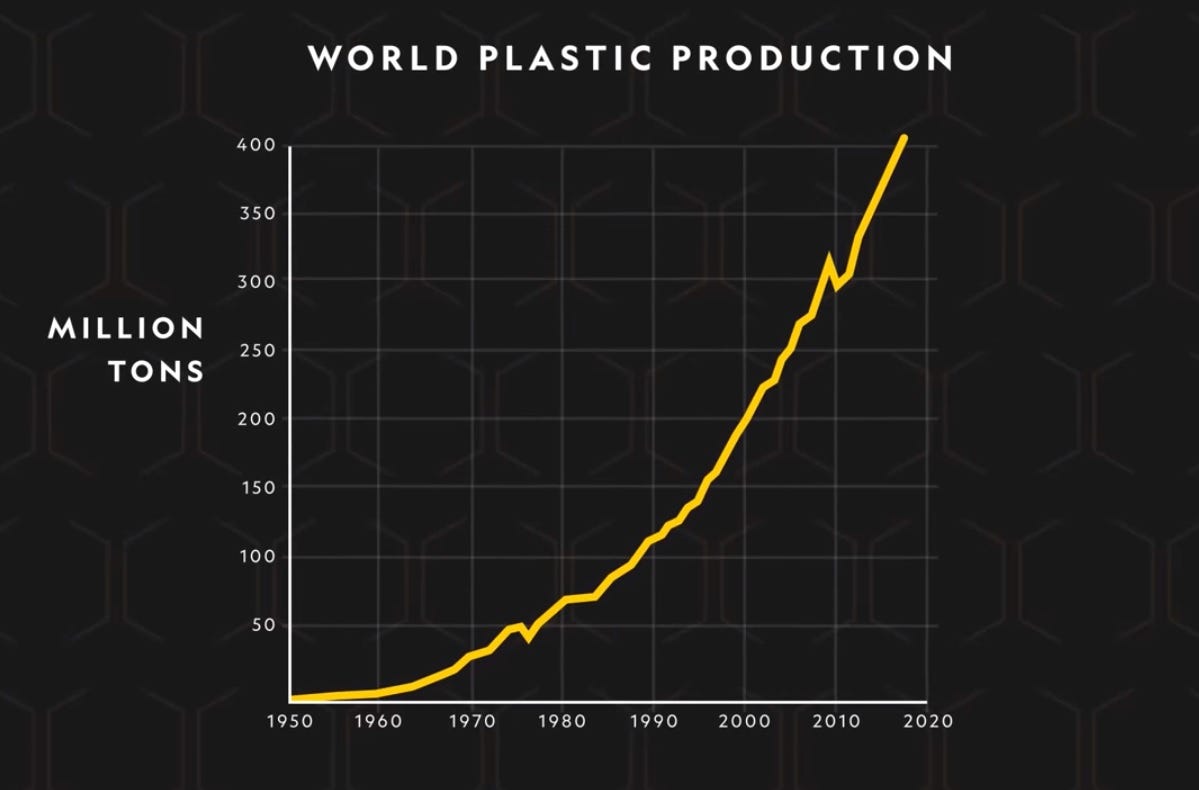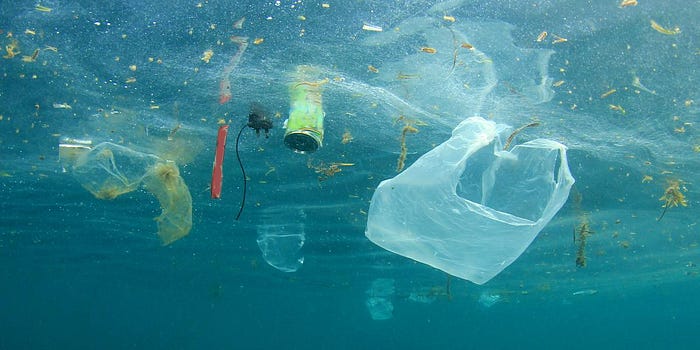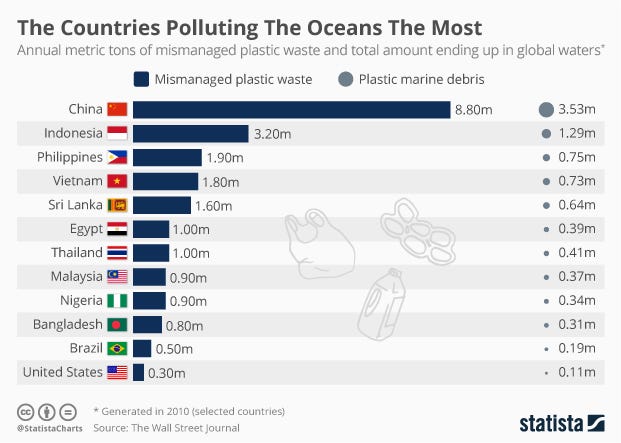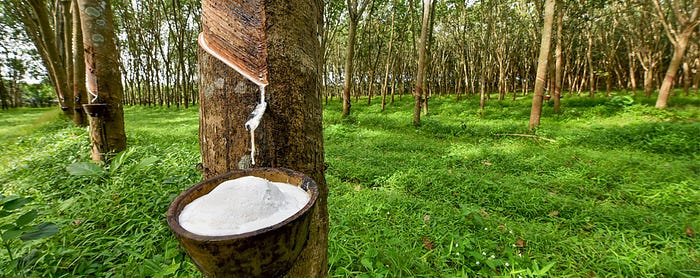Plastic Pollution in Indonesia
Can Indonesia solve its plastic problem?
What is plastic? Plastic is material consisting of any of a wide range of synthetic or semi-synthetic organic compounds that are malleable and so can be molded into solid objects. Plastic have become such an entrenched part of our lives. Most of today’s plastic are derived from fossil fuels. Because of plastic utility, it’s global production has doubled about every decade. The amount of plastics produced since 1950 has measured at about 9.2 billion tons.

Much of this plastic ends up as trash. Single-use plastic such as straws, grocery bags and packaging products are, particularly, detrimental. They often aren’t recycled and constitute about 40% of all plastic waste.

Source : University of Tasmania
They end up damaging natural habitats, endangering wildlife and polluting communities around the world. Plastic pollution is a big problem for Indonesia. Indonesia a country in Southeast Asia, between the Indian and Pacific oceans. It is the world’s largest island country, with more than seventeen thousand islands. Indonesia is a second biggest marine pollutant in the world. Indonesia produced 3.2 million tons of plastic waste in 2010, with around 1.29 million tons of that ending up in the ocean, according to Statista.

Source : Statista
Indonesia already applied a charge on plastic bags in Mini-market or Supermarket, but I don’t think it has a great impact. Plastic bags were basically everywhere and they were littering the environment. Some were getting in the drains, clogging them. Some were habitats for mosquito and mosquito causes malaria. So, plastic is a big environmental menace.
What is the solution?
Indonesia can make a tougher rule for plastic bags, like banning all of them. For example, Rwanda and Kenya had already ban using of plastic bags. The impact of banning was very huge for people and environment. Water can easily free flow in the drainage, the country is very clean, disease like malaria were eliminated, etc. A clean country attracts more visitors tourism, increasing Indonesia’s foreign exchange.

Source : Coruba
Or Indonesia can produce plastic with using rubber. Indonesia is one of the biggest rubber producer. Indonesia can be a global leader in a global initiative for the natural and sustainable sourcing of plastic.
Life without plastic is possible.

